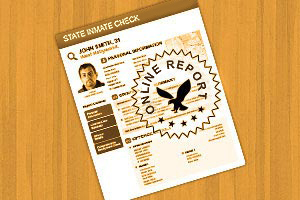Alaska Public Records
Welcome to the Alaska State Records website. Its mission is to provide Alaskans with an easy-to-use search engine to find public records, as is their right. This is in accordance with the Alaska Public Records Act, which ensures government information and records are available to the public.
The goal of this website is to allow Alaskans a way to access Alaska state public records easily, efficiently, and concisely, without requiring a reason for needing the information, or revealing any personal information, providing requested records are not confidential.
Alaska State Records contains information about criminal records, court records, and vital records and includes over 6.5 million transparent public records.
Are Alaska Records Public?
Yes. The state of Alaska provides broad access to a wide variety of records. Members of the public can inspect or obtain copies of Alaska public records by making a public records request to custodian government officers and agencies. According to the Alaska Public Records Act (APRA), public records include any document maintained, received, or developed in connection with official business. Public records may include photos, drawings, documents, letters, microfilm, paper, paper tapes, or maps. Records may also be stored as digital files.
What is Considered Public Information in Alaska?
Public records in Alaska include:
- Alaska criminal records and criminal history records
- Court records generated by Alaskan judicial systems
- Alaska arrest records
- Alaska inmate information
- Public Alaska divorce records
- Alaska public property records
- Public Alaska marriage records
- Alaska death records
- Non-confidential Alaska birth records
For a public record to be made available to an inquirer in Alaska, the inquirer's public records request must feature information needed to facilitate a record search. Inquirers must note that while selected agencies can offer a free public data search, some may charge fees for copying, processing, etc. Third-party sites also allow users to conduct public data searches online.
What is the Alaska Public Records Act?
The Alaska Public Records Act is a set of statutes that ensures public access to all records generated by the state, regional, and municipal government agencies in the state of Alaska. This includes records held by executive, legislative, judicial, and quasi-judicial branches of government, as well as documents from local governments such as school districts, cities, and boroughs. Under this act, members of the public have the right to access these records for inspection or copying. Fees for copies may be charged but must not exceed the actual cost incurred by the agency for reproduction. With certain exceptions, agencies are required to respond within 10 days with either granting access or denying access with an explanation. Refusal to provide requested information can result in legal action from the requester or citizens seeking access to the records. The Alaska Public Records Act is an important resource for citizens and organizations seeking access to public records in the state of Alaska. It is essential in preserving transparency, integrity, and accountability within government agencies.
How Do I Find Public Records in Alaska?
Except for confidential records and those protected by state and federal statutes, Alaska public records are open to free inspection. However, if an individual requires copies of the requested records, the public agency concerned may charge fees for the production of copies. Record holders are required to respond to requests within 10 business days. To access public records, requesters must take the following steps:
Step 1. Determine the type of record required.
To access a record, requesters must determine the type of record and the corresponding agency from which it may be requested. Some examples include
- Criminal records: These provide information on a person’s criminal history, such as arrests, probation, warrants, and incarceration information. They can be obtained from Alaska’s Department of Public Safety (DPS). Individuals can also request Alaska public records from the DPS Public Information Office through its electronic system.
- Vital records: Records of births, adoptions, deaths, and other life events such as marriages, and divorces are classified as vital records. They are available to request at the Alaska Department of Health and Social Services Vital Records Office. Vital records may also be requested online through the approved portal.
- Government financial reports: These include records of government budgets, expenditures, travel and compensation reports, payment reports, and cost allocation plans. They can be requested from the Department of Administration, Division of Finance.
- Court Records: This encompasses information pertaining to all judicial proceedings within the state's jurisdiction. Alaska court records can be accessed by querying the office of the court clerk in the court where the case was held. Otherwise, requesters may obtain them using the Alaska CourtView System which offers online access to records of court cases heard in the state.
Step 2. Determine the government agency with the records.
Each government agency only keeps records pertaining to its functions. Therefore, public records can only be requested from the agency in which they were created or received. For instance, hospitalization reports and other health analytics can be requested from the Alaska Department of Health and Social Services Vital Records Office. Similarly, the Alaska Division of Corporations, Business, and Professional Licensing stores records of Businesses and professional licensing. Requesters may make requests through electronic or physical mail. A guide to records management and a list of records officers are available through the Records and Information Management Service.
Step 3. Determine accessibility.
Confidential information and other exempted records are not accessible to the public. Exempted records are those excluded from public access by state and federal statutes. They may also include records available only to authorized persons. Examples are juvenile records or records sealed by a court order. Other confidential records are adoption registry information, birth and marriage certificates. Records containing personal or private information are only accessible to the subjects of the record or their immediate relatives. Some other exempted records, such as sealed court records, may only be available to state law enforcement agencies. Requests for confidential or exempted records by unauthorized persons will be denied.
Step 4. Determine the Availability.
Many government records are available for inspection in electronic databases. Some records are only available at state libraries or government agencies. To access these records, requesters can make requests through dedicated electronic portals. Alternatively, requests can be made in person at the agency’s facility or by mail.
Step 5. Contact the Record Holder
To facilitate ease of access to Alaska public records, government agencies designate records access officers. Once the record holder has been identified, requesters must:
- Make a written request: Many government agencies in Alaska provide public records request forms. Others have dedicated electronic portals from which requests may be made much like the Alaska Courtview System. Requests may also be made orally; however, in the case of a denial, a written request is required to file an appeal. It is important to ascertain the agency’s chosen method before making requests.
- Where necessary, provide valid identification: To access confidential and exempted records, requesters may be required to provide identification or authorization. For example, to access a birth certificate, requesters must prove either that they are the subject of the record or otherwise authorized to inspect the record. For mail requests, the required documentation must be attached to the Alaska public records request form.
- Pay applicable fees: Public records are free to inspect during agencies’ regular business hours. However, if a requester requires copies of the record, they may be charged a fee. In accordance with Alaska’s Public Records Laws, the fee may not exceed the cost of production of the copies. Records officers may waive applicable fees if a record is provided more than 20 days after its request was received. Fees may also be waived if the records officer determines that is in the public interest. Requestors are required to pay fees before receiving copies of the records requested. Government agencies may also require payment before the record search.
Some Alaska public records may also be accessible from third-party websites. These non-government platforms come with intuitive tools that allow for expansive searches. Record seekers may either opt to use these tools to search for a specific record or multiple records. However, users must typically provide enough information to assist with the search such as:
- The name of the subject involved in the record (subject must be older than 18 or not juvenile)
- The address of the requestor
- A case number or file number (if known)
- The location of the document or person involved
Government agencies do not sponsor the last known or current address of the registrant third-party sites. Because of this, record availability and results may vary.
How Do I Look Up Public Records in Alaska for Free?
Interested parties may be able to find free Alaska public records by requesting to view or inspect them in person at the respective public office. For instance, to conduct a free public records search in a county in Alaska, the inquirer may visit the county clerk’s office or the county recorder’s office and submit a request. Alternatively, the requester may process their public records request using the self-service computers available in some government offices. These government agencies permit the examination of public records during set office hours. Government agencies may also provide access to free Alaska public records via an online database. The Alaska Department of Public Safety maintains a public central registry that freely provides regularly updated information on individuals convicted of particular sex crimes. Anyone can search through the portal using a known first name and last name. Searches can also be filtered by address, zip code, or city. On online portals like Alaska CourtView, users will need to provide the case number of the record, the name of the record holder, or the citation number (in the case of a traffic ticket).
Alaska’s state government began in 1900 and started generating records for the state’s 30 boroughs and census areas shortly after. Over the last 30 years, digitalization of these records has become the standard, and online records are becoming more available through both third-party and government websites. This ensures Alaska abides by the commitment of the United States of America to remain a fair and just society for all.




